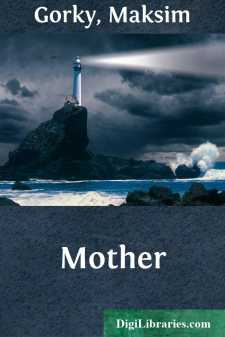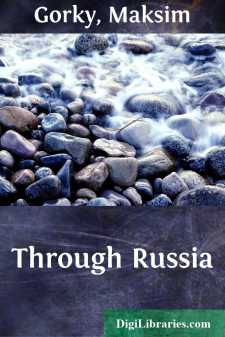Categories
- Antiques & Collectibles 13
- Architecture 36
- Art 48
- Bibles 22
- Biography & Autobiography 813
- Body, Mind & Spirit 142
- Business & Economics 28
- Children's Books 17
- Children's Fiction 14
- Computers 4
- Cooking 94
- Crafts & Hobbies 4
- Drama 346
- Education 46
- Family & Relationships 57
- Fiction 11829
- Games 19
- Gardening 17
- Health & Fitness 34
- History 1377
- House & Home 1
- Humor 147
- Juvenile Fiction 1873
- Juvenile Nonfiction 202
- Language Arts & Disciplines 88
- Law 16
- Literary Collections 686
- Literary Criticism 179
- Mathematics 13
- Medical 41
- Music 40
- Nature 179
- Non-Classifiable 1768
- Performing Arts 7
- Periodicals 1453
- Philosophy 64
- Photography 2
- Poetry 896
- Political Science 203
- Psychology 42
- Reference 154
- Religion 513
- Science 126
- Self-Help 84
- Social Science 81
- Sports & Recreation 34
- Study Aids 3
- Technology & Engineering 59
- Transportation 23
- Travel 463
- True Crime 29
Mother
by: Maksim Gorky
Description:
Excerpt
CHAPTER I
Every day the factory whistle bellowed forth its shrill, roaring, trembling noises into the smoke-begrimed and greasy atmosphere of the workingmen's suburb; and obedient to the summons of the power of steam, people poured out of little gray houses into the street. With somber faces they hastened forward like frightened roaches, their muscles stiff from insufficient sleep. In the chill morning twilight they walked through the narrow, unpaved street to the tall stone cage that waited for them with cold assurance, illumining their muddy road with scores of greasy, yellow, square eyes. The mud plashed under their feet as if in mocking commiseration. Hoarse exclamations of sleepy voices were heard; irritated, peevish, abusive language rent the air with malice; and, to welcome the people, deafening sounds floated about—the heavy whir of machinery, the dissatisfied snort of steam. Stern and somber, the black chimneys stretched their huge, thick sticks high above the village.
In the evening, when the sun was setting, and red rays languidly glimmered upon the windows of the houses, the factory ejected its people like burned-out ashes, and again they walked through the streets, with black, smoke-covered faces, radiating the sticky odor of machine oil, and showing the gleam of hungry teeth. But now there was animation in their voices, and even gladness. The servitude of hard toil was over for the day. Supper awaited them at home, and respite.
The day was swallowed up by the factory; the machine sucked out of men's muscles as much vigor as it needed. The day was blotted out from life, not a trace of it left. Man made another imperceptible step toward his grave; but he saw close before him the delights of rest, the joys of the odorous tavern, and he was satisfied.
On holidays the workers slept until about ten o'clock. Then the staid and married people dressed themselves in their best clothes and, after duly scolding the young folks for their indifference to church, went to hear mass. When they returned from church, they ate pirogs, the Russian national pastry, and again lay down to sleep until the evening. The accumulated exhaustion of years had robbed them of their appetites, and to be able to eat they drank, long and deep, goading on their feeble stomachs with the biting, burning lash of vodka.
In the evening they amused themselves idly on the street; and those who had overshoes put them on, even if it was dry, and those who had umbrellas carried them, even if the sun was shining. Not everybody has overshoes and an umbrella, but everybody desires in some way, however small, to appear more important than his neighbor.
Meeting one another they spoke about the factory and the machines, had their fling against their foreman, conversed and thought only of matters closely and manifestly connected with their work. Only rarely, and then but faintly, did solitary sparks of impotent thought glimmer in the wearisome monotony of their talk. Returning home they quarreled with their wives, and often beat them, unsparing of their fists....



